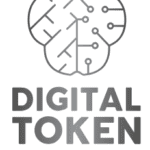In the ever-evolving landscape of the internet, a new concept has been generating buzz, capturing the imagination of tech enthusiasts, gamers, and visionaries alike. It’s called the Metaverse, and it’s not just another digital buzzword; it’s a profound shift that could redefine the way we interact with the internet. In this article, we’re going to dive deep into the world of the Metaverse, exploring what it is, why it matters, and how it could be the future of the internet as we know it.
What is the Metaverse?
Imagine a digital realm where you can be anyone, do anything, and go anywhere – a space where the boundaries of the physical world blur into the limitless possibilities of the virtual realm. This is the Metaverse. It’s a collective virtual shared space that encompasses augmented reality (AR), virtual reality (VR), and the internet. In essence, the Metaverse is an interconnected network of digital environments that offer users a seamless experience, allowing them to interact with one another and their surroundings in real-time.
The concept of the Metaverse was popularized by science fiction authors and, most notably, Neal Stephenson in his 1992 novel “Snow Crash.” In this futuristic vision, the Metaverse was portrayed as a vast, immersive digital universe where people could escape from the limitations of the real world.
Fast forward to today, and the Metaverse is no longer a mere sci-fi fantasy. It’s rapidly becoming a reality, thanks to advancements in technology, connectivity, and the convergence of various digital platforms. Tech giants, including Facebook (now Meta), Google, and many others, are investing heavily in the development of this digital frontier.
Why is the Metaverse Important?
The importance of the Metaverse lies in its potential to reshape the internet and how we interact with it. Here are some compelling reasons why it’s a game-changer:
- Immersive Experiences: The Metaverse offers a level of immersion that’s unparalleled. Users can step into entirely different worlds, engage in social activities, and interact with digital content in a much more engaging and lifelike way. Whether it’s gaming, education, or entertainment, the possibilities are vast.
- Infinite Possibilities: In the Metaverse, your digital persona is not confined to the limitations of your physical self. You can be a fantastical creature in one moment and a scientist exploring the depths of the ocean in the next. The possibilities are only limited by your imagination.
- Social Interaction: The Metaverse is not a solitary experience. It’s designed for social interaction, enabling people to connect, collaborate, and socialize in ways that mimic real-life interactions. This is particularly relevant in a world where remote work and virtual connections have become increasingly important.
- Economic Opportunities: Just as the internet opened up new economic opportunities, the Metaverse is set to do the same. From virtual real estate and in-game economies to creative content creation and digital marketplaces, there’s a growing landscape for entrepreneurship within the Metaverse.
- Accessibility: As the Metaverse develops, it could become more accessible to people with physical disabilities or limitations. This inclusivity can revolutionize the way we think about work, play, and communication.
Metaverse vs. Internet: What’s the Difference?
At this point, you might be wondering how the Metaverse differs from the internet as we know it. It’s important to understand that the Metaverse is an evolution of the internet, not a replacement.
The internet, as we currently use it, is a vast network of websites and services. It’s largely a 2D experience, where we consume content and interact with others through text, images, and videos. The Metaverse, on the other hand, adds a third dimension by making the digital world more immersive, interactive, and interconnected.
While the internet is primarily a tool for communication, information, and entertainment, the Metaverse takes these concepts to a whole new level. It’s not just a place to visit websites; it’s a place to exist, interact, and engage with a dynamic, ever-changing digital environment.
Key Technologies Driving the Metaverse
To build the Metaverse, several key technologies need to work together harmoniously. Here are some of the essential components:
- Virtual Reality (VR): VR technology enables users to immerse themselves in digital environments. With VR headsets, users can explore virtual worlds as if they were physically present.
- Augmented Reality (AR): AR blends the digital world with the real world by overlaying digital information onto our physical surroundings. This technology is already prevalent in apps like Pokémon GO and Snapchat filters.
- Blockchain and NFTs: Blockchain technology provides the foundation for digital ownership and security within the Metaverse. Non-fungible tokens (NFTs) establish ownership of digital assets, whether it’s virtual real estate, in-game items, or digital art.
- Artificial Intelligence (AI): AI powers the intelligent agents and NPCs (non-player characters) that populate the Metaverse, making it more interactive and dynamic.
- 3D Scanning and Modeling: Creating realistic digital environments and avatars requires sophisticated 3D scanning and modeling technology to capture the physical world and convert it into a virtual representation.
- High-Speed Connectivity: The Metaverse demands high-speed, low-latency internet connections to ensure a smooth and responsive experience. 5G and beyond will play a crucial role in this aspect.
Metaverse Use Cases
The potential applications of the Metaverse are vast and varied. Let’s explore some of the most exciting use cases:
- Gaming: Gaming is at the forefront of the Metaverse revolution. Players can enter immersive game worlds, socialize with others, and even earn real money by trading in-game assets.
- Social Interaction: The Metaverse – natural fit for socializing. You can meet up with friends, attend events, or participate in activities in digital spaces, all while feeling like you’re physically present.
- Education: Could revolutionize education by creating interactive, 3D learning environments. Students can engage in immersive experiences, making learning more engaging and effective.
- Business and Work: Remote work could take on a whole new dimension. Meetings, conferences, and collaboration can be more immersive, bringing colleagues together regardless of physical locations.
- Art and Creativity: Artists can showcase their work in virtual galleries, and creators can monetize their content through NFTs. The Metaverse opens up new avenues for digital artists and musicians.
- Real Estate: Virtual real estate is a burgeoning market within the Metaverse. People are buying and selling digital land, much like physical real estate, with the potential for development and profit.
- Healthcare: Telehealth services could extend into the Metaverse, providing innovative solutions for patient interaction and virtual therapy.
- Entertainment: Attend virtual concerts, explore movie-like experiences, or participate in live events, all from the comfort of your own home.
Challenges and Concerns
While the Metaverse holds immense promise, it’s not without its challenges and concerns:
- Privacy: With increased immersion comes an increased need for privacy. How personal data handled and protected within the Metaverse is a crucial issue.
- Content Regulation: As with any digital space, regulating content and ensuring remains safe and suitable for all ages is a complex challenge.
- Digital Divide: Access to the Metaverse relies heavily on internet connectivity and the affordability of the required hardware. This can lead to a digital divide, leaving some individuals excluded.
- Monopoly Concerns: As big tech companies invest heavily, there’s a fear of monopolization and a lack of competition in this emerging space.
- Security: The Metaverse’s reliance on blockchain and digital assets makes it susceptible to hacking and fraud. Security measures must evolve to protect users and their investments.
The Road Ahead
The Metaverse is undoubtedly an exciting frontier, but its full realization is still a work in progress. While many are actively working on building this digital realm, it may take years or even decades to reach its full potential. However, it’s clear on a trajectory to change the way we perceive and interact with the internet.
As the Metaverse continues to develop, it’s essential for policymakers, businesses, and users to engage in discussions about its governance, ethics, and regulations. Striking a balance between innovation and protection will be key to its long-term success.



1 comment
[…] that has changed the world in many ways. It has created new forms of communication, content, metaverse and community that have both positive and negative impacts on society, culture, and business. Social […]